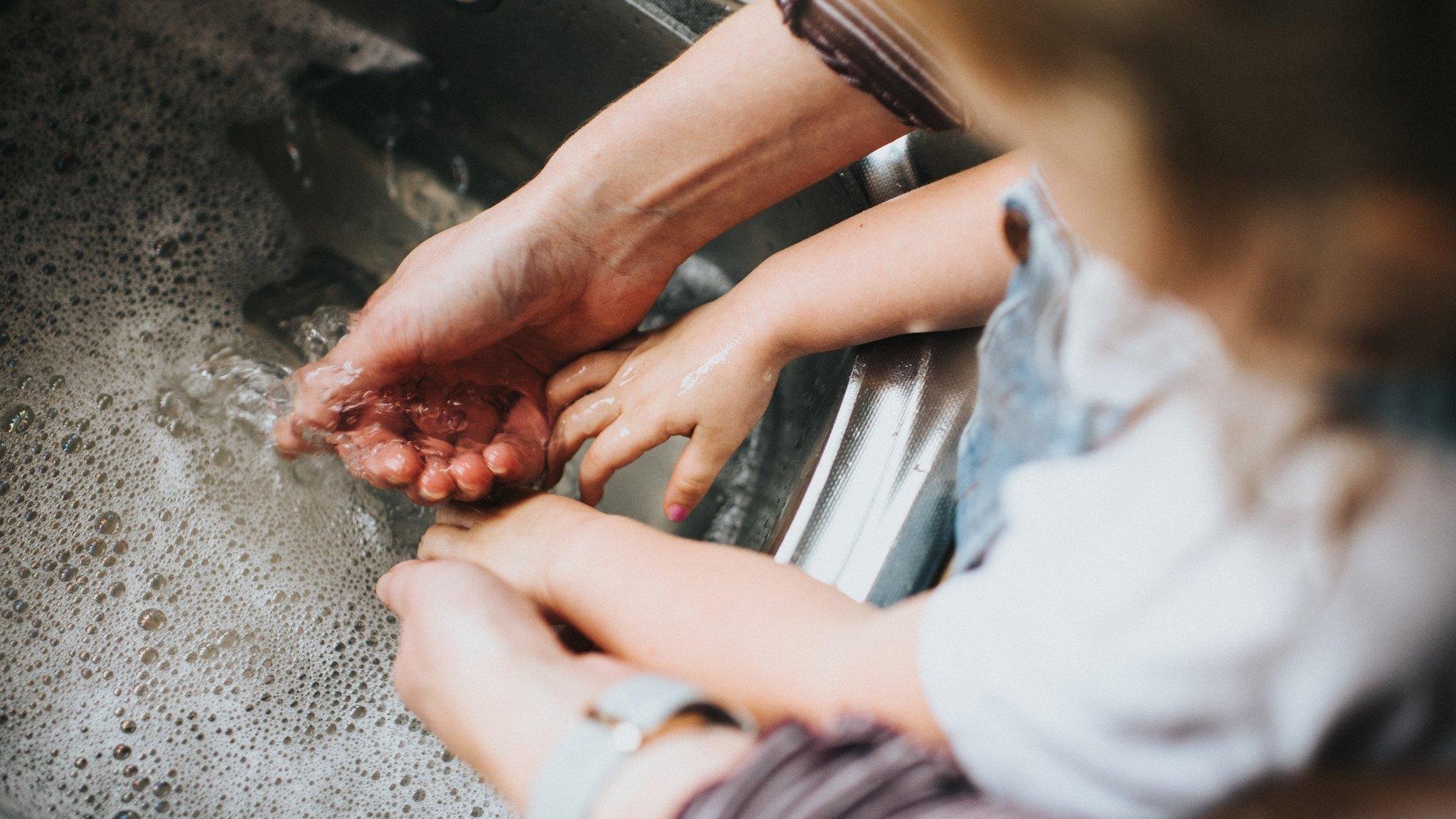Youth 'shouldn't have to go without basic hygiene'
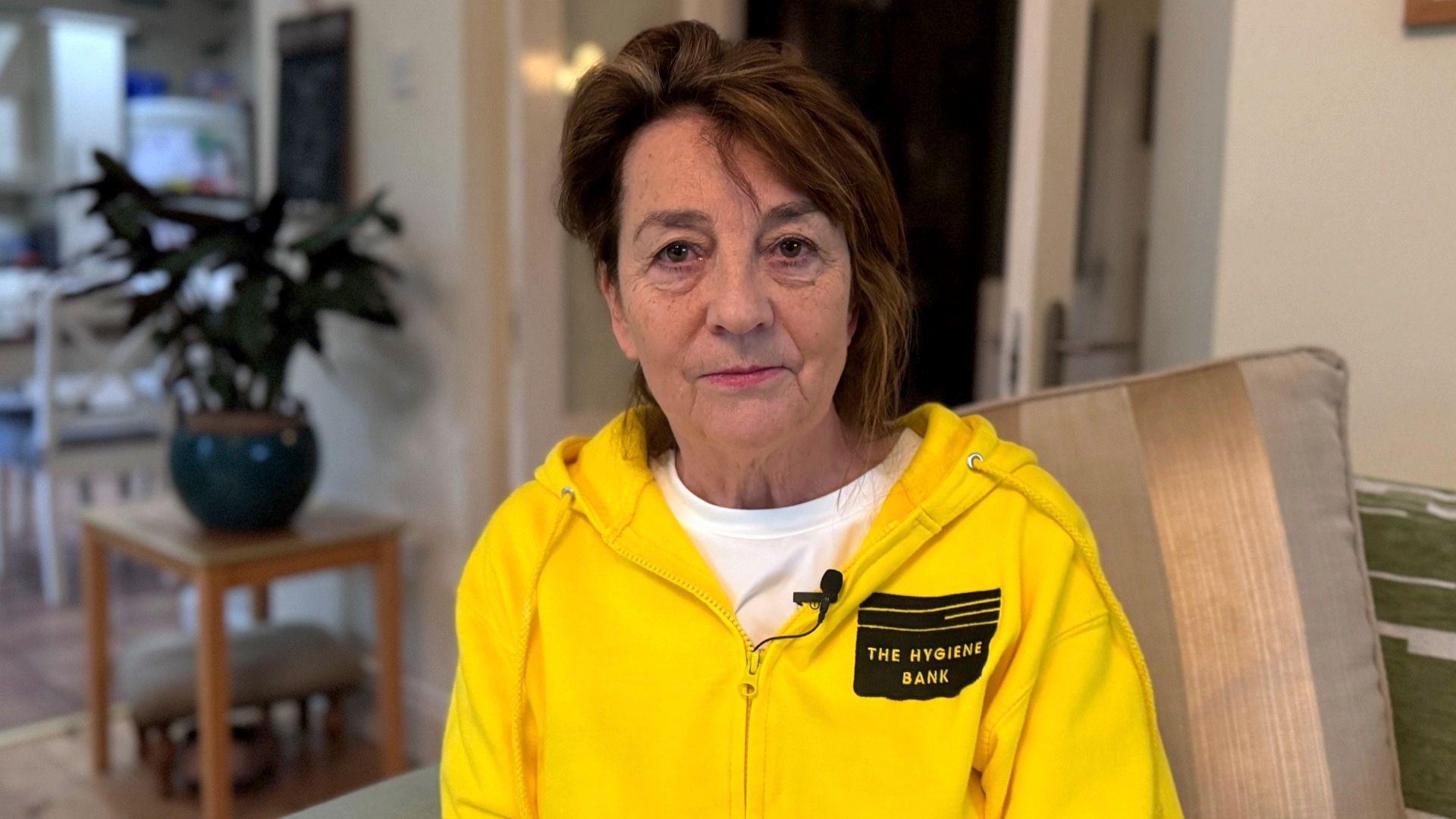
Eileen Brown is project co-ordinator of the Dungannon Hygiene Bank
- Published
It's a very simple thing we take for granted - getting up in the morning, brushing our teeth, getting washed.
But, as Eileen Brown points out, for some people these simple acts are not simple at all - and it's due to the "big problem" that is hygiene poverty.
Ms Brown is the project coordinator at a hygiene bank in Dungannon, County Tyrone, and her group is part of a network of charities across the UK that give people access to basic hygiene products for free.
"I know of many parents who are struggling, they're juggling bills and trying to make sure they have dinner on the table," she said.
"A lot of them will use a food bank, but there aren't always hygiene products there and that's where we can step in."
Hygiene Bank UK estimates that there are 4.2 million adults in the UK in hygiene poverty.
Now there are 168 hygiene banks across the UK, with 13 of these in Northern Ireland.
Volunteers at the Dungannon hygiene bank collect and distribute products such as toothpaste, deodorants and shampoos from bins placed in locations such as shops and chemists.
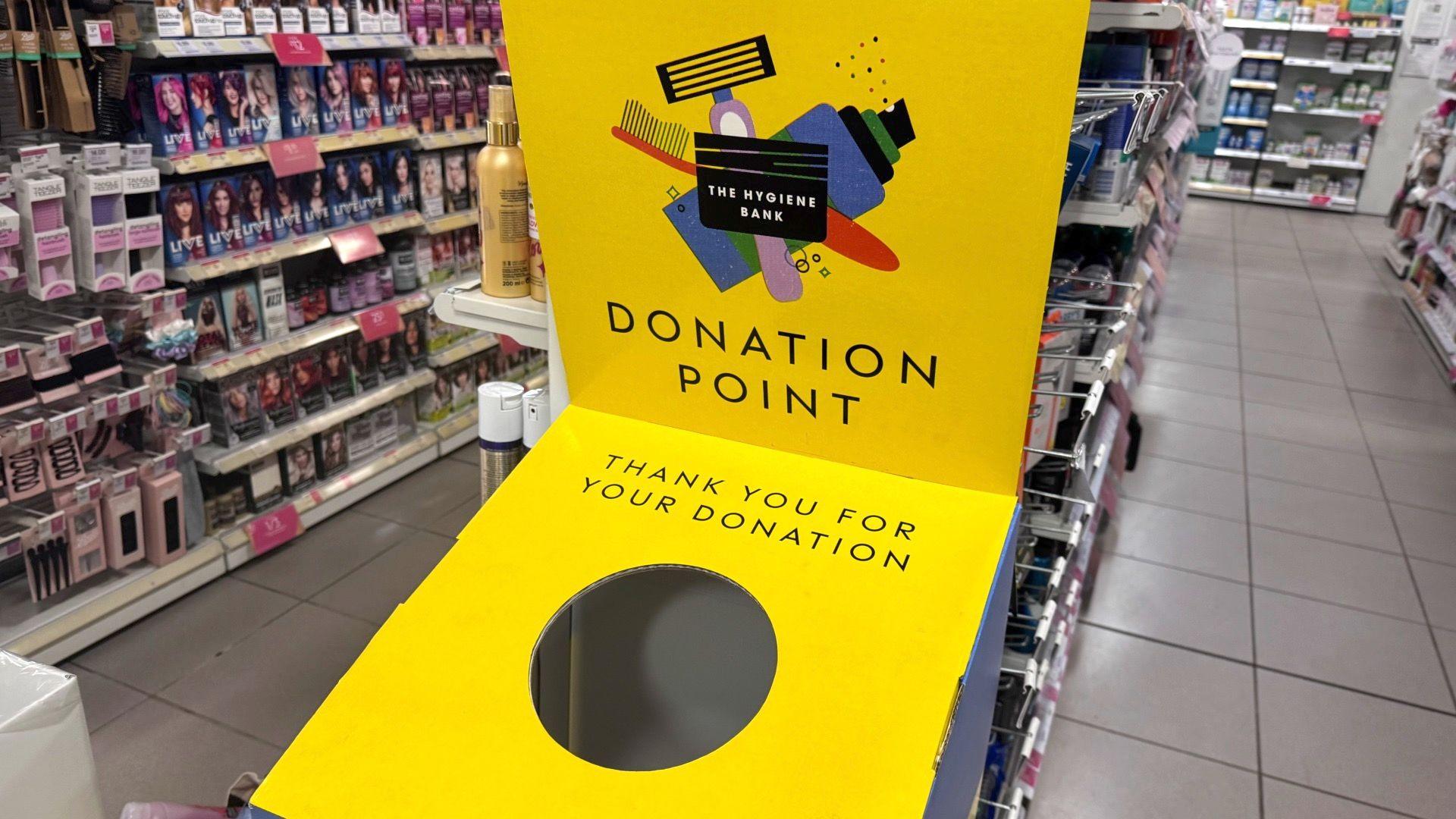
There a number of hygiene donations bins in shops throughout mid-Ulster
"In the mid-Ulster area we have amazing volunteers who will go collect the products donated to hygiene bins and bring them back to our bank to be sorted," Ms Brown said.
"Then we get them out to places where they can access people most in need, from schools to mental health units."
St Joseph's College in Coalisland, County Tyrone, is one of the organisations that works with the Dungannon hygiene bank.
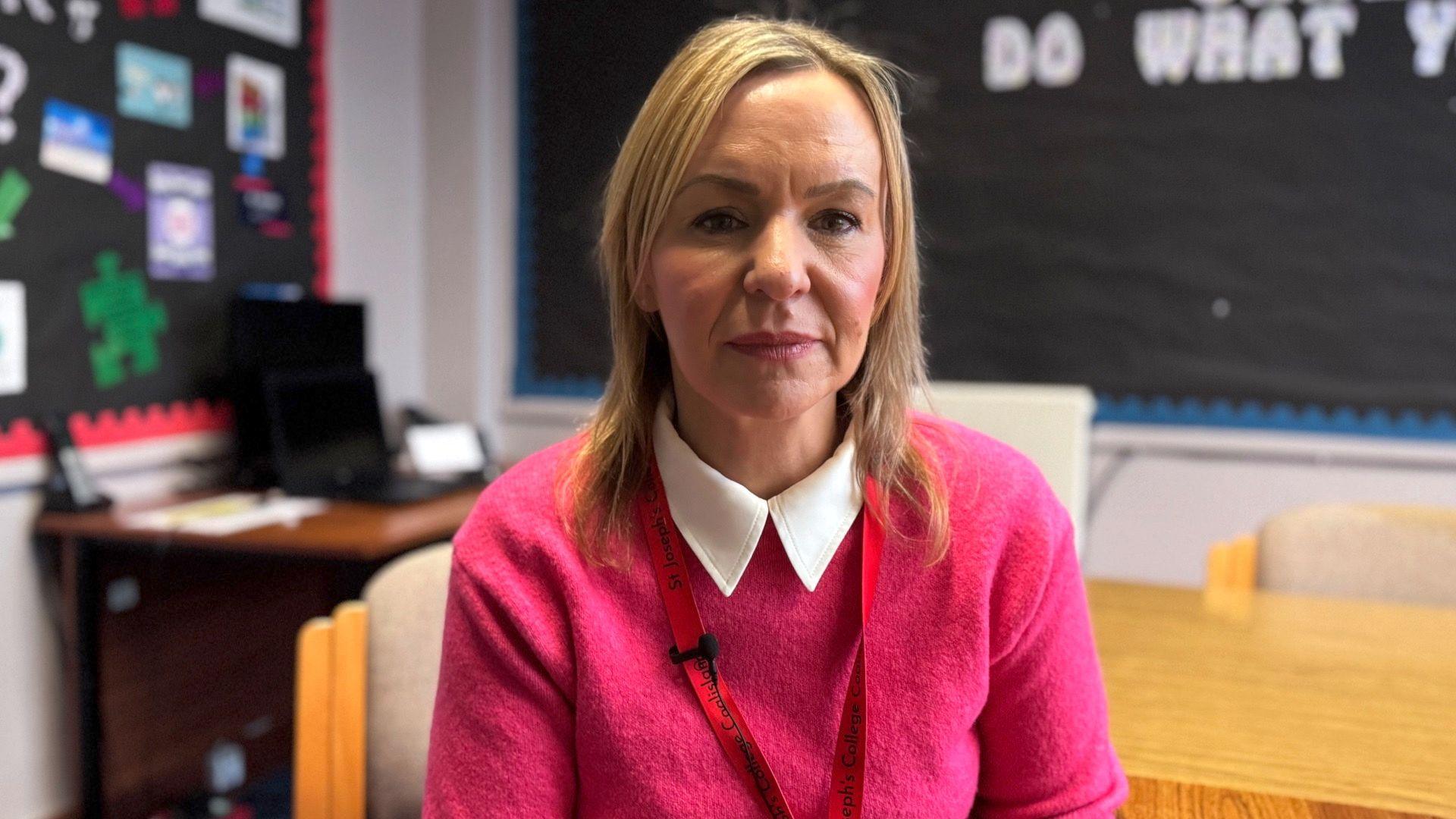
Orlagh Barrett, a teacher at St Joseph's College in Coalisland, who works with the hygiene bank
Orlagh Barrett, a teacher and leader of pastoral care at the school, said she considered the opportunity to source "valuable products that the pupils could use" as a "game-changer for kids".
"Obviously we're all about building the self-esteem of the pupils and encouraging them to look after their wellbeing.
"It's about taking away the stigma to make sure the children know it's OK, and these things are here for all of us and it's all about sharing.
"Getting a number of the pupils involved with the bank has been central to all of that."
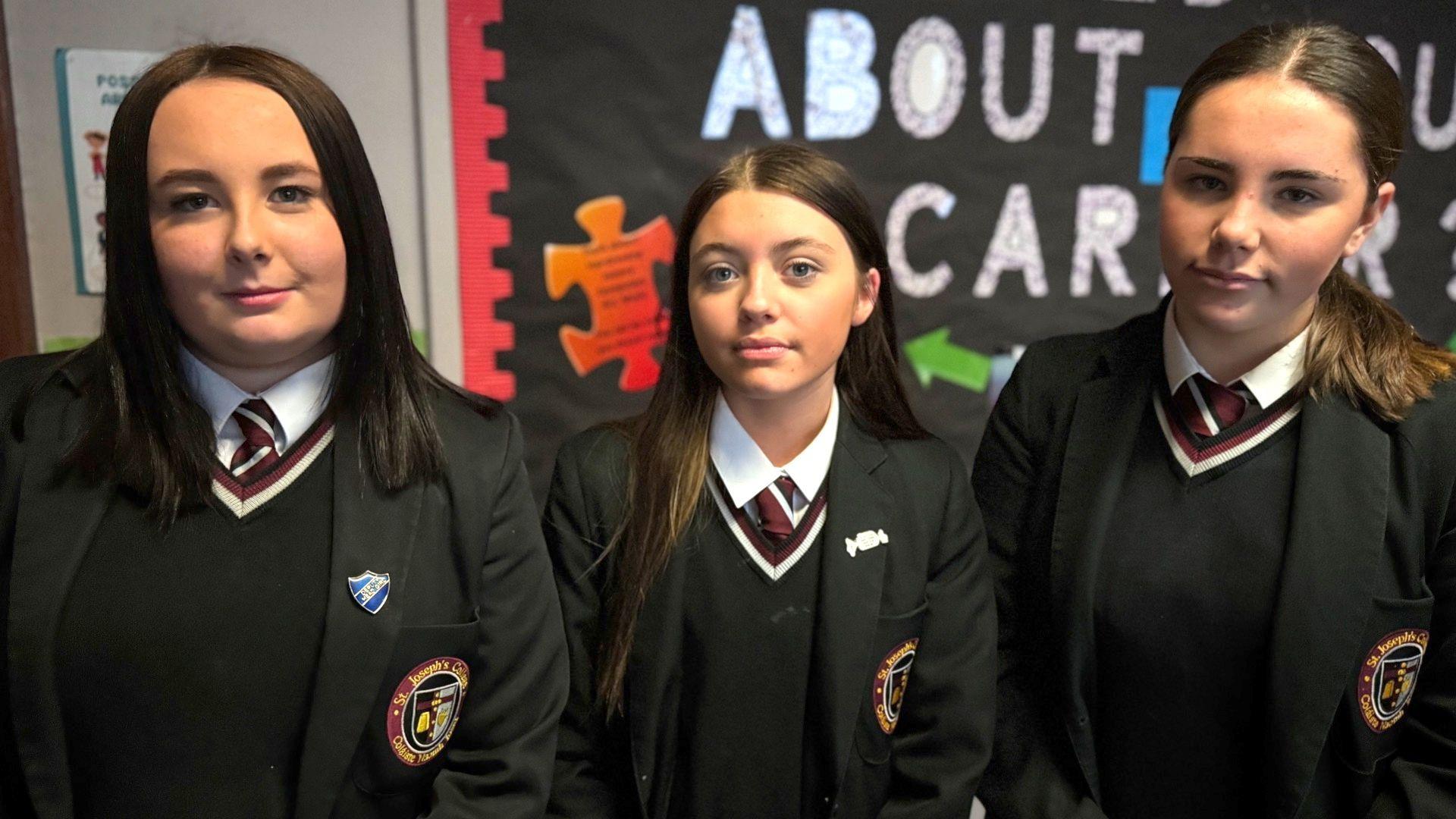
Cassie, Taigan and Eimear have all been involved with helping to organise the school's hygiene bank
Taigan, who is 16 and a pupil at St Joseph's, said she first heard about the bank when she was in fourth year and immediately wanted to get involved.
Her classmate Eimear added: "I think it's a great idea, young people shouldn't have to go without basic hygiene and it shouldn't be something to be embarrassed about. We all go through struggles, so we want people to reach out."
St Joseph's deputy head girl Cassie, who is 15, said it was a good way for pupils to support each other.
"Everybody should feel confident in their own bodies, so it's a nice thing to have for people."
The hygiene bank also works with the perinatal mental health team in the Southern Health and Social Care Trust.
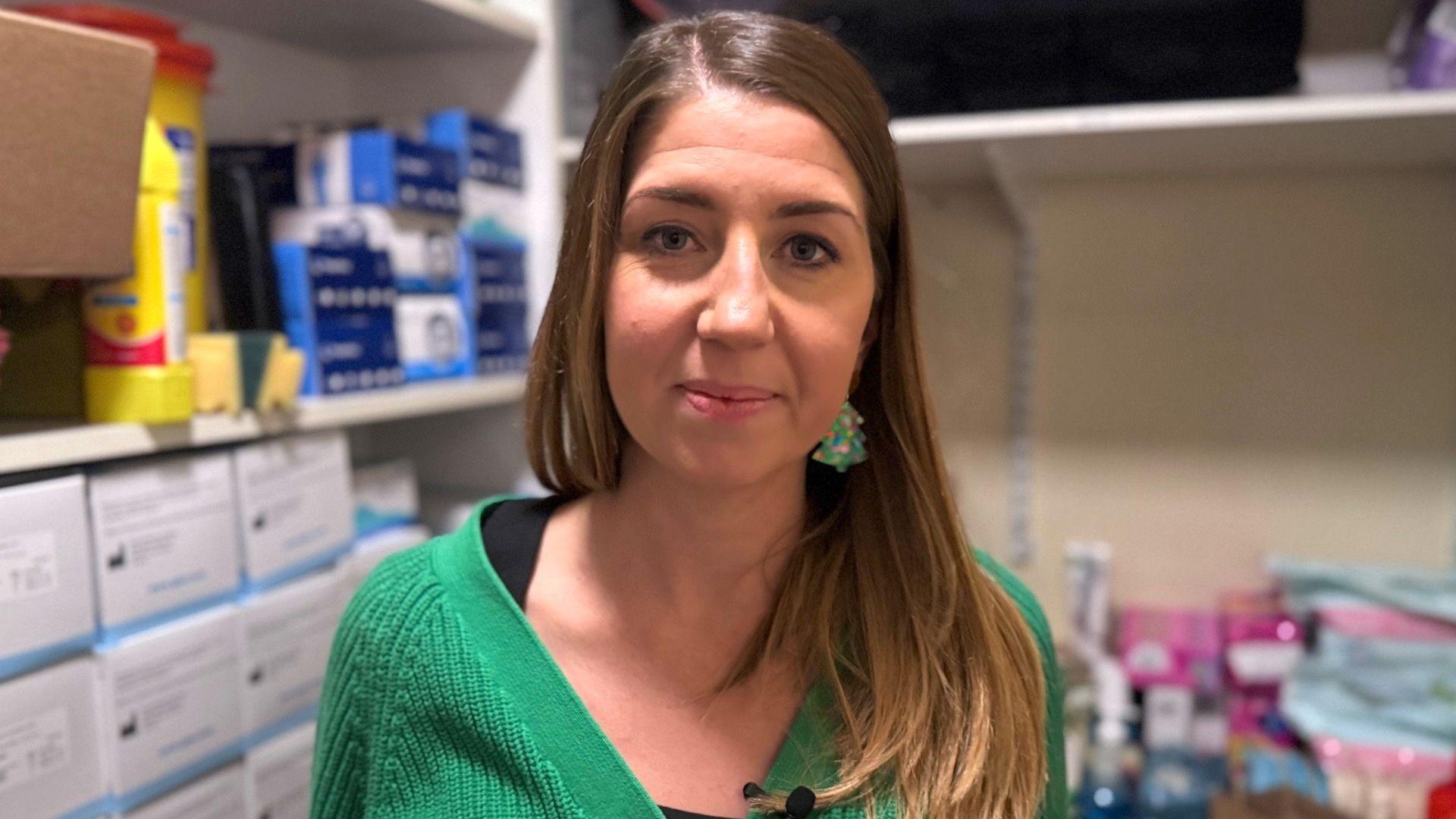
Sara McConville is an occupational therapist with the perinatal mental health team in the Southern Health and Social Care Trust
Sara McConville, who is an occupational therapist in the team, said they found a lot of new mothers were struggling financially.
"Babies bring additional costs, with all the equipment, extra clothes and new mouths to feed," she said.
"It has been such a valuable resource for us to be able to provide these mummies with hygiene products, it's one less thing for them to think about it."
However, Eileen Brown said there are areas that need to be addressed when it comes to hygiene poverty.
"There are still huge gaps in the Strabane and Omagh area where there are no hygiene banks," she said.
"So there's still a lot of work to be done and a lot of need out there."
- Published7 November 2024
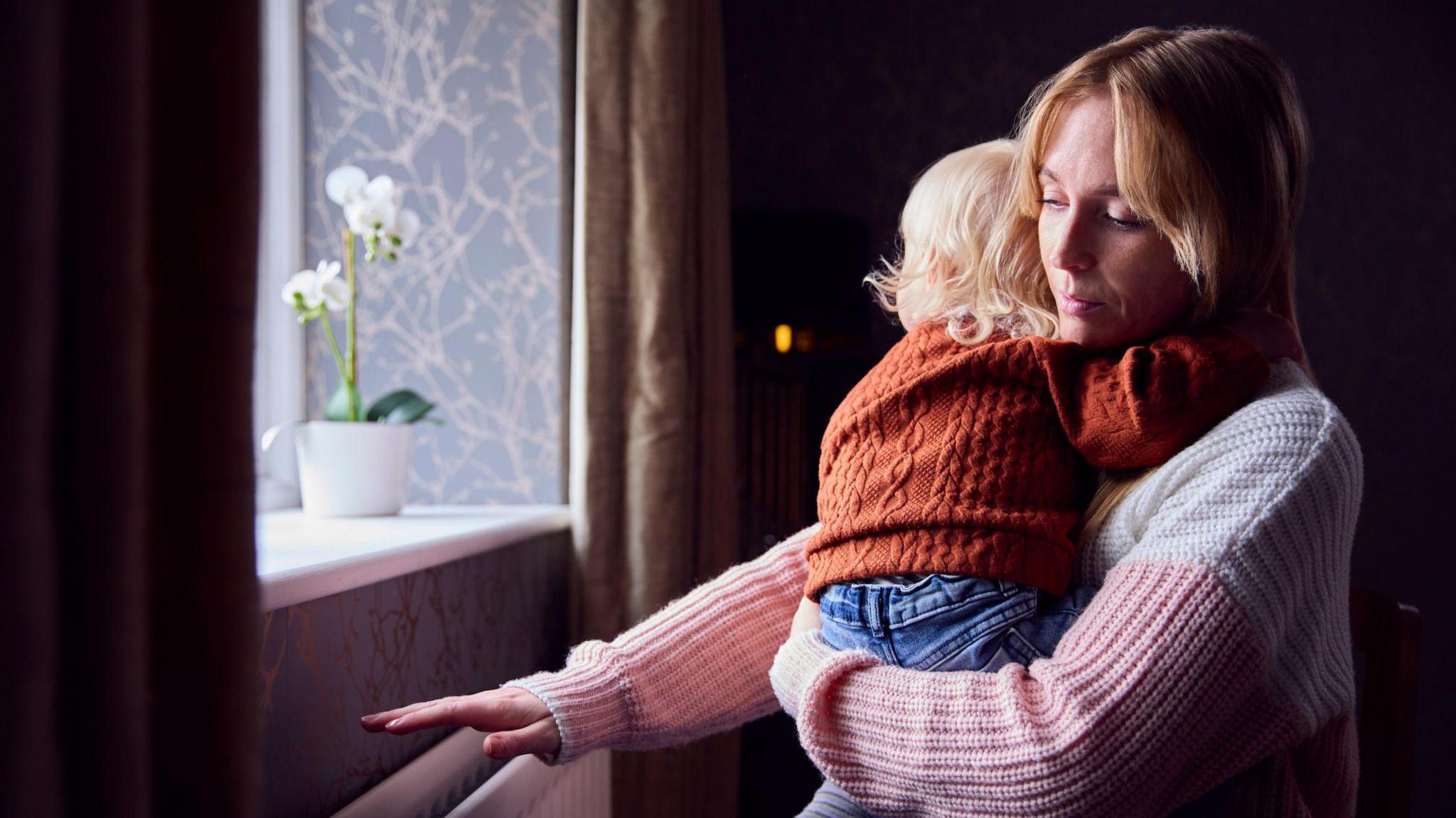
- Published20 November 2024
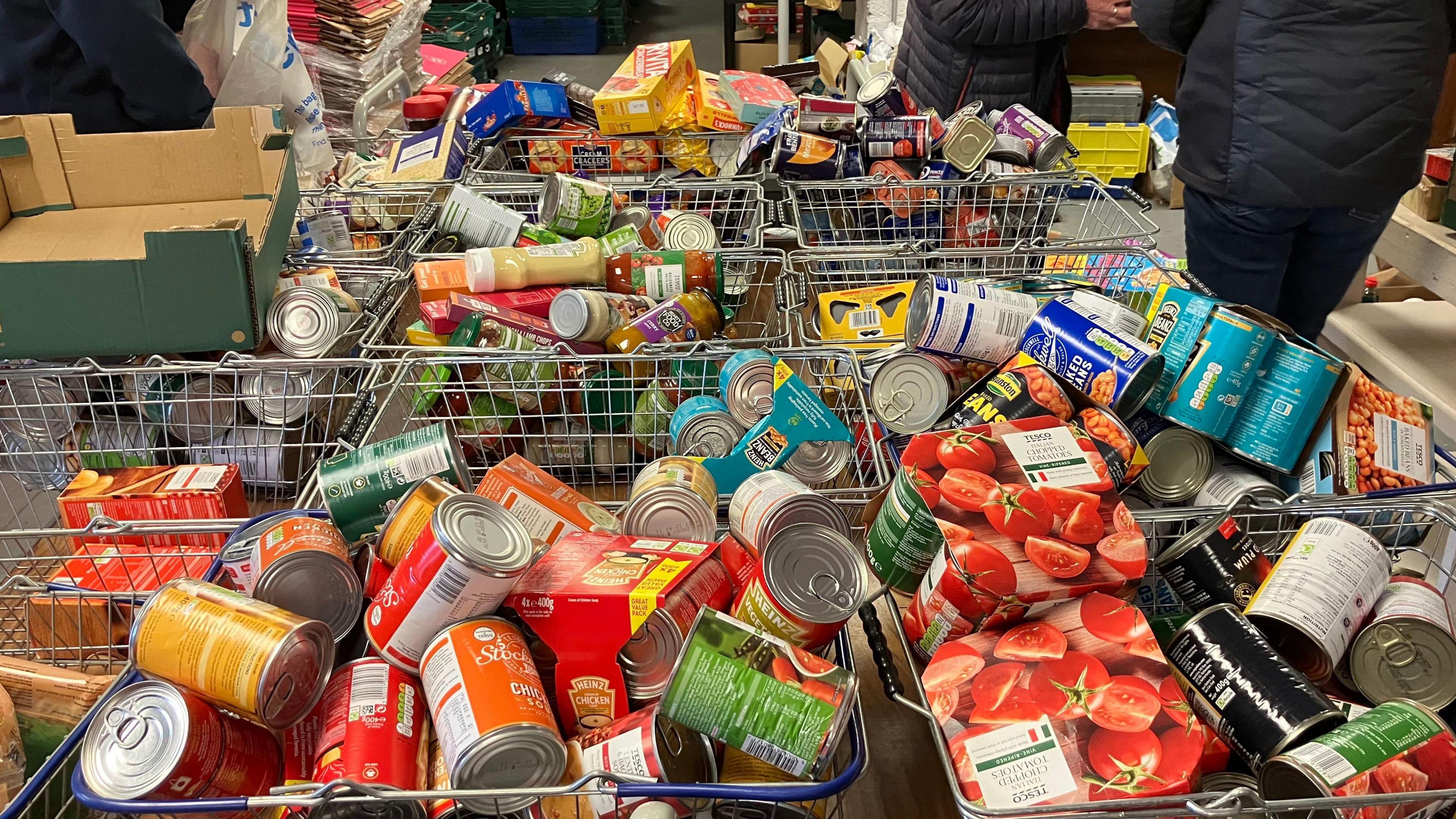
- Published18 May 2023
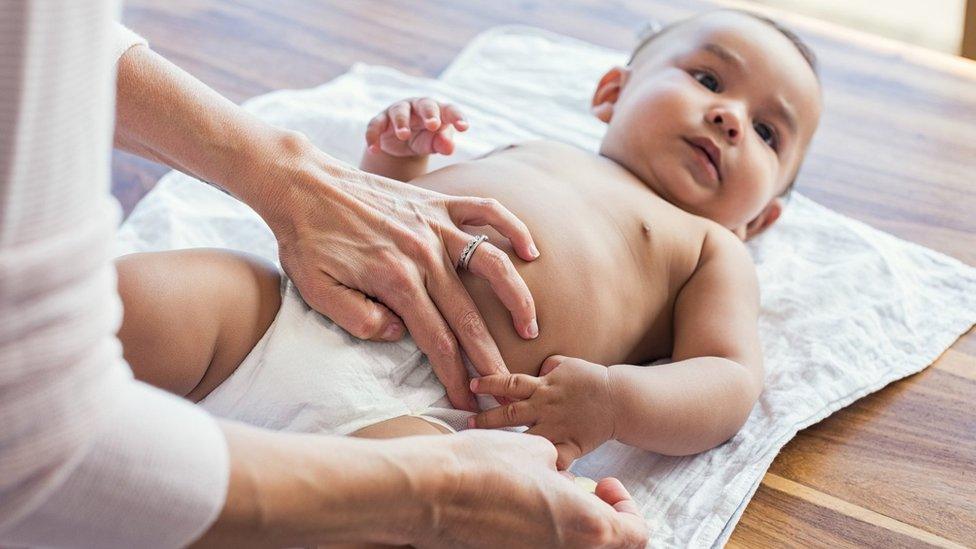
- Published14 December 2024

- Published24 March 2024
